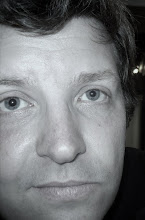"It took many, many years for anybody to pick up on the reference to ‘And Dream Of Sheep’ in ‘Longing For Lucy’. Maybe I’m talking myself into a lawsuit here, but that second half of the Hounds Of Love references so much other stuff as well, I don’t feel out of order to be borrowing one line. The line was very deliberately placed there for a specific reason. It’s about a real person, she was the one who got me into Hounds Of Love.
I first heard it in a Halls of Residence student party, it was 'Jig Of Life', of all tracks. The idea was, ‘You’re into folk music, have you heard this?’ Just incredible. I listened to the album all the way through from start to finish, and I thought it was just mind-blowing. I had The Red Shoes, it came out just when I was getting into pop music, and I was aware of people like Tori Amos, PJ Harvey and Bjork, who all name-checked her, and I was a huge Peter Gabriel fan through my dad’s records; I loved 'Games Without Frontiers'. So I was aware it was something I would like but I hadn’t found an entry in.
Ever since, Hounds Of Love has been my late night, walking home, can’t get to sleep record. I listen to it from start to finish on headphones and disappear into it. It’s such a complete piece of work, and it spans both listening experiences: it’s got some great singles you can pick out, or you can embrace the whole thing.
It stands up to repeated listening remarkably well, and I’m still trying to figure out as a producer and musician how you do that. I’ve still got no idea how to make something be that solid and tangible, that doesn’t change depending what angle you look at it. That’s really hard. It's a record with so many disparate parts where everything fits. I’ve read since that she wishes she’d brought in male singers to sing the male parts but I love the fact that she uses a really primitive pitch shifter to do all the vocals herself. And the idea of using the Medici Quartet as this marching, rhythmic thing.... Genius! The record was obviously written from the rhythms up, which is a great way to write pop music, but it’s still got that arty thing, too. Really it’s a mystery to me. I wish I knew how to do it!"

